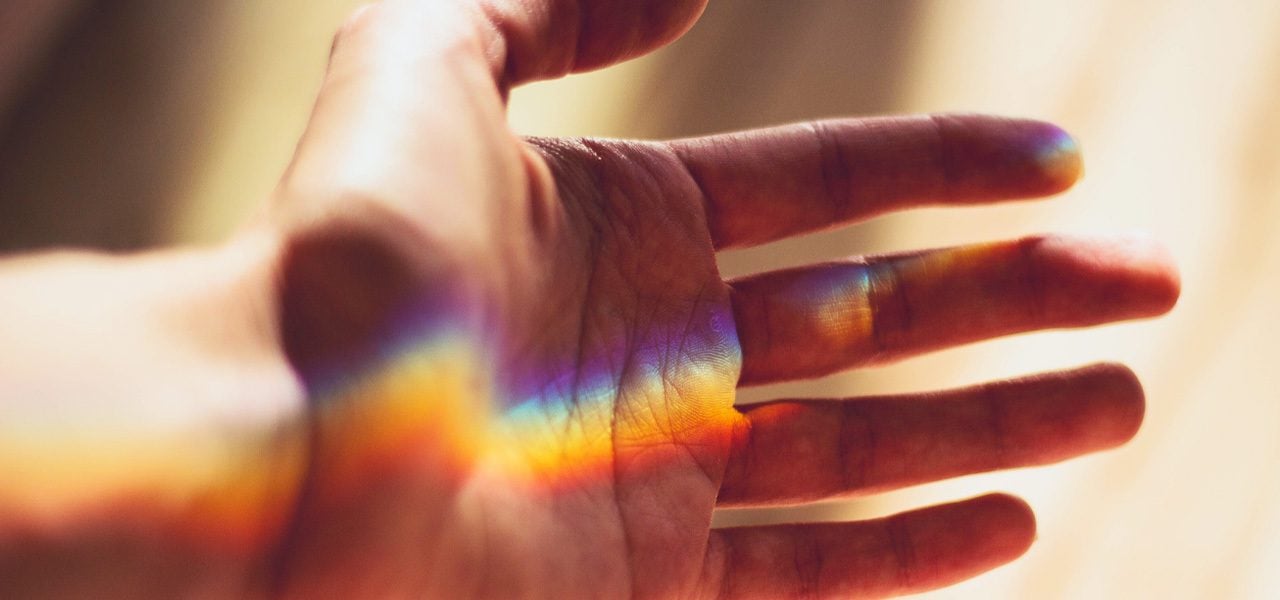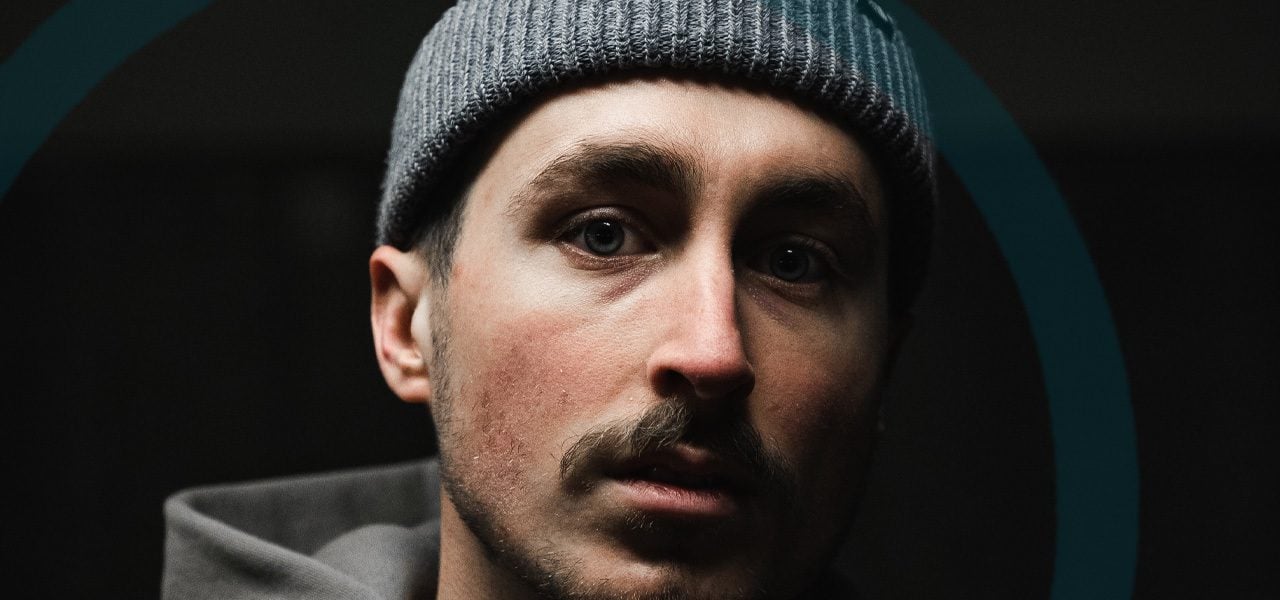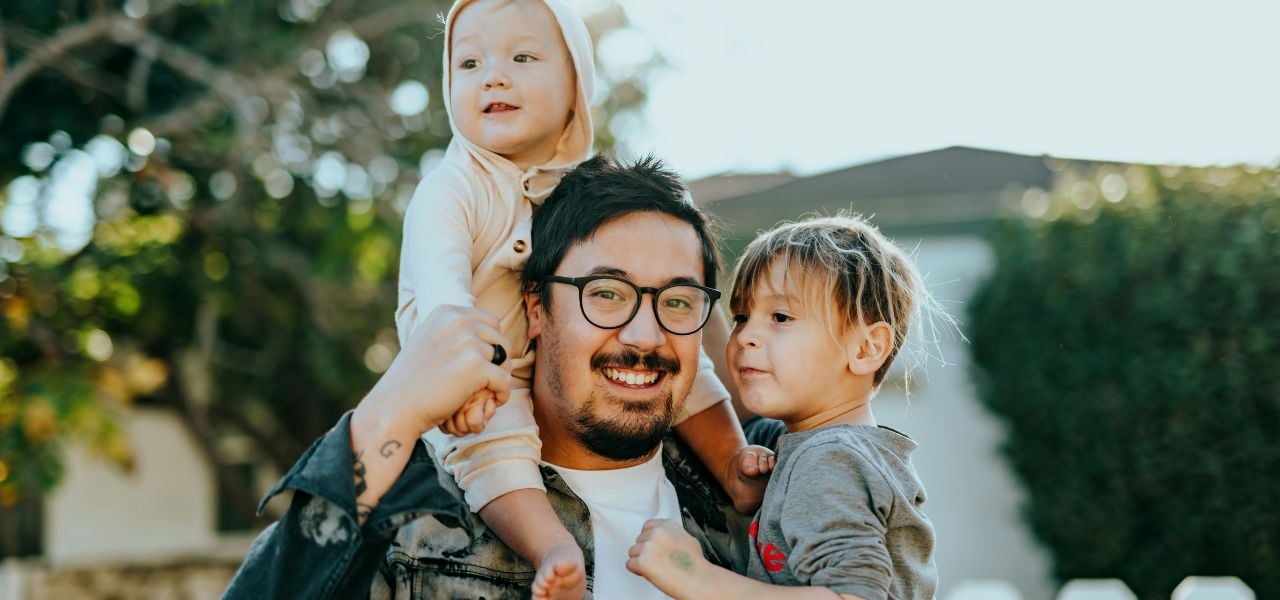A senior member of Edgewood’s clinical team is using his own harrowing story to promote inclusion and safety for members of the 2SLGBTQ+ community seeking recovery.
By Jeff Vircoe
EHN Edgewood Nanaimo is under a rainbow of colours this pride month and the facility’s most senior counselor is grinning ear to ear because of it.
John Marshall, a clinician who notches 20 years at the facility this month, has leaned into his colourful past and present to make sure the Nanaimo facility shines prouder than ever this year.
Marshall is one of the key voices behind Edgewood’s growing reputation as a safe place for members of minority communities. Openly gay, he has caught the ear of the centre’s brass and clinical teams by advocating strongly for more inclusionary practices and opportunities for people in the 2SLGBTQ+ communities.
Edgewood had fledgling 2SLGBTQ+ groups started but during the pandemic those movements were not able to achieve the traction they needed to grow. As the centre began to emerge from the COVID stress, Marshall, 63, stepped up to advocate for a more committed approach to the Edgewood’s 2SLGBTQ+ patients and alumni. He approached Clinical Director Joel Hughes and Executive Director Carrie McVeigh. They were both very receptive.
The management team gave the green light and a weekly morning group for 2SLGBTQ+ inpatients took off and an evening group was rekindled with more support. The voluntary groups fluctuate in attendance size, with typically anywhere from two to eight patients showing up.
“We just created a safe space for them to be able to talk about things involving their identity and things they may not feel comfortable talking about in a regular morning group,” says Marshall.
EDGEWOOD MEETING PEOPLE WHERE THEY ARE AT
In the past five years, Edgewood’s clinical landscape has shifted in many ways, with more programs offered, and different modalities and practices available. Joining a proven palate already solid with 12-step facilitation roots came Cognitive Behavioural Treatment (CBT), Dialectical Behavioural Treatment (DBT) and Accelerated Resolution Therapy (ART). Add in music therapy, art therapy, medical assistance therapy, a strong Concurrent Trauma and Addiction Program, and Edgewood has become more evidence-based, and more able to reach more people. It’s Indigenous Healing Program with attention paid to cultural sensitivity is attracting clients from across the country.
Edgewood’s push to be more vocal about its safe and inclusionary practices for minority communities has also grown in the last few years. Bonnie Bartlett, one of EHN Canada’s Marketing Managers, says it is all part of a push to better understand and serve communities across the country. Basically, meeting people where they are at.
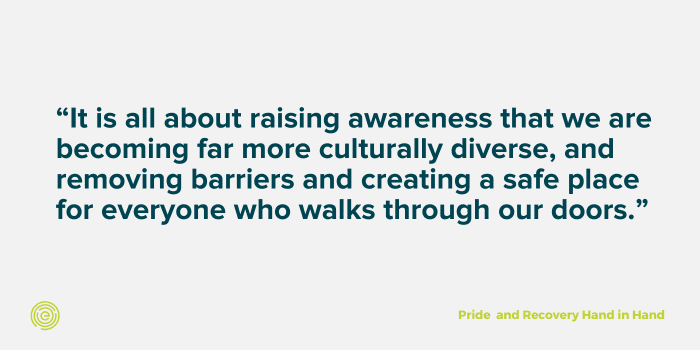
“It is all about raising awareness that we are becoming far more culturally diverse, and removing barriers and creating a safe place for everyone who walks through our doors,” says Bartlett. “Not just our Indigenous folks, but our 2SLGBTQ+ populations and anybody else for that matter. It is a learning opportunity. We are just trying to build awareness that we are non-biased and a safe place for all.”
A CLINICIAN LEADS WITH HIS HEART AND HISTORY
When you scan the ranks of the people who work at the Nanaimo centre, it is no surprise to see Marshall in the middle of the charge to make sure Edgewood shows off its commitment to inclusion.
Indeed, when you look around the common area of Edgewood, its living room of sorts, you can’t help but notice him. With his silver hair and piercing blue eyes, Marshall is about as visible as any counselor. Listening to a patient share an assignment, swapping stories and jokes with others, raising an eyebrow, and giving feedback when he hears an inappropriate comment, Marshall is like a mother/father hen when he is in the busy mix of clients and staff.
He began work for Edgewood in the summer of 2003, just a few months before the centre’s cofounder, Jane Ferguson, died in a plane crash near Penticton, B.C. As management steadied a devastated team dedicated to fulfilling Ferguson’s wish to help as many people as possible, Marshall was one of those who staggered but did not fall as he found his footing and his voice.
After all, those “many people” included people like him. A gay person in recovery.
Marshall’s personal story is filled with glimpses into the dark and scary moments of a generation that gained so much hope since Pierre Trudeau said, “There is no place for the state has no business in the bedrooms of the nation,” on December 22, 1967.
In that period, Trudeau introduced modernizing reforms to the Criminal Code of Canada that would decriminalize homosexuality. However, the march to equal rights for the 2SLGBTQ+ community was a long way from over. Marshall has lived through a lot of the bumps and bruises that has Pride Month activity seeming as mainstream as road hockey games.
THE PAINFUL STIGMA FACING A GAY PERSON
Marshall came out to his parents as gay as a young teen. It didn’t go well.
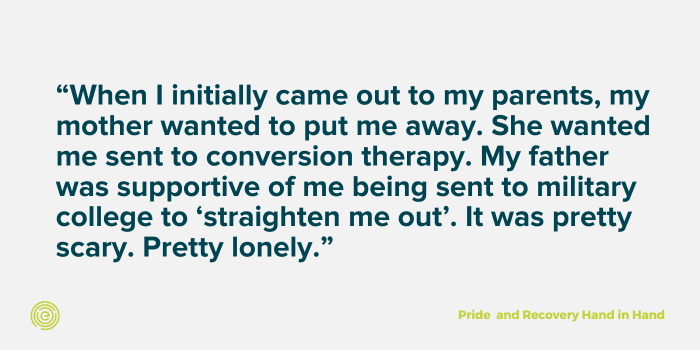
“When I initially came out to my parents, my mother wanted to put me away. She wanted me sent to conversion therapy. My father was supportive of me being sent to military college to ‘straighten me out.’ It was pretty scary. Pretty lonely,” he says.
His sexual identity was going to have to be kept under wraps, he determined.
A few years later, studying arts at Trent University, Marshall heard a radio talk show go sideways when a caller spouted off against people like him. He would phone in anonymously and give a strong rebuttal to the hurtful nonsense the caller had ranted about. Marshall was asked to do a television clip soon after, with his full name being used. He would join the Trent Homophile Association and began advocating for gay rights.
The counselor experienced all kinds of abuse because of his sexual identity. A dorm roommate in university demanded a room change, was denied, and left school when he found out Marshall was gay. He was sexually assaulted, left on the side of a highway.
“I was receiving death threats and it got to the point where I was suicidal.”
Drinking in bars by age 15, Marshall was well on his way to a full-on substance use disorder. He would leave university and move to Toronto, where he was a high-end waiter and chef. He lived in the 2SLGBTQ+ area known affectionately as “The Ghetto” in the late 1970s and through the 1980s.
“Even though there was a large community, there was still an awful lot of pretty sick stuff going on. You could lose jobs because you were gay. You could lose housing because you were gay. You could have doctors refuse medical care. And doctors did.”
CRISIS HITS THE COMMUNITY
The AIDS crisis was also raging as many in the gay community lost their lives. “People that were close to me. People that were friends. You would see them one day, then if you didn’t see them for a few weeks, you would hardly recognize them.
“It was a twitchy way to live. It was like who is next? It wasn’t clear at the time exactly how it was being transmitted. Exactly what it was and how it was doing what it was doing. It was a scary, scary way to live.”
All through it came the stigma, the discrimination the shame, the lack of tolerance of those who couldn’t accept others. Even in The Ghetto.
“A friend of mine, I hadn’t seen in probably three months, showed up at my restaurant one day. I didn’t recognize him initially. He was so gaunt. He was just skin and bones. I went in to hug him and I remember my manager going ‘don’t touch him! Tell him to leave!’ I walked him out of the restaurant and gave him a hug around the corner and said I would call later. It was that kind of walking on eggshells living at the time.”
JUDGEMENT, REJECTION, AND RECOVERY
Marshall dulled his pain with alcohol and a kaleidoscope of pills through it all.
“I had been rejected by my family. So many parts of society were judging me, and people like me. And all we wanted to do was to be able to love one another. We wanted to enjoy each other’s company. And there was this disease that was killing people and we didn’t know a lot about it at the time. And always, that feeling of people who didn’t know us, had no real connection to us, hated us for existing.”
One of Marshall’s moments of clarity occurred in February 1981 when a series of police raids on Toronto bathhouses resulted in 300 arrests. The gay community had been targeted and everyone knew it. He would go to the ensuing protest marches and was arrested for allegedly assaulting a police officer and was shipped to the notorious 52nd Division headquarters. He went to trial, and when the police officer didn’t show, the judge involved threw the case out. The file remains however, and to this day Marshall is flagged when traveling out of country.
Much has changed since then. Marshall would find himself in the Al-Anon Family Groups, supporting a friend, then stumbling into other 12-step groups in Toronto in the late 1980s. With the internalized trauma of his story, he chose to go to seek further help at Renascent Treatment Centre as he approached a year of sobriety.
He has remained abstinent since May 2, 1989.
GETTING VOCAL IN TURBULENT TIMES
Flash forward to 2023 and Marshall says watching the political rhetoric spewing from the far right reminds him of a different time. He decided to go more public with this story.
“With all the stuff that was going on in the States and moving into Canada, it is going back to the 1950s and 1960s with attitudes,” he says with a shake of his head. “When I saw the political drift backwards, part of what I said to [Clinical Director] Joel Hughes was I am not going to be quiet,” says Marshall.
Edgewood has unreservedly embraced the celebration of Pride Month. On June 8, they hosted their second Pride Awareness and Celebration Day. The Pride flag waved, the building was colourful and brightly adorned. A guest speaker took the stage during the morning lecture. Pins, flags, and wristbands were dispersed. The kitchen prepared a colourful spread. It may not seem out of the ordinary among other special days, but behind it lies a rich story.
Forgetting the past or shutting the door on it will not be okay. Not on John Marshall’s watch, and not on the watch of many other brave people who work at the “House of Miracles” in 2023. For the remainder of June and upcoming months, Edgewood will have a visible presence at Nanaimo, Victoria, and Vancouver events, and right across the country where other EHN Canada facilities try to help others achieve recovery. The 2SLGBTQ+ is welcome and supported in recovery.
The push to ensure inclusion and safety is happening, sometimes quickly, sometimes slowly, but it is materializing, thanks to the steady support of people like John Marshall and many other peers in and out of recovery.
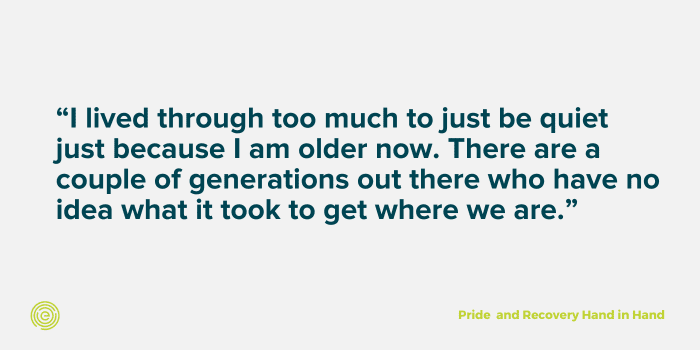
“I lived through too much to just be quiet just because I am older now. There are a couple of generations out there who have no idea what it took to get where we are. So much changed fairly quickly that they haven’t had to feel the persecution. They haven’t had to feel threatened. They haven’t had to feel a lot of the things that those of us who were there at the real push, went through. And I am not going back.”
RECOVERY IS POSSIBLE. WE CAN HELP.
Struggling with addiction? You can begin your recovery journey at our facilities across Canada and through virtual programs. Find out more about what we treat.
